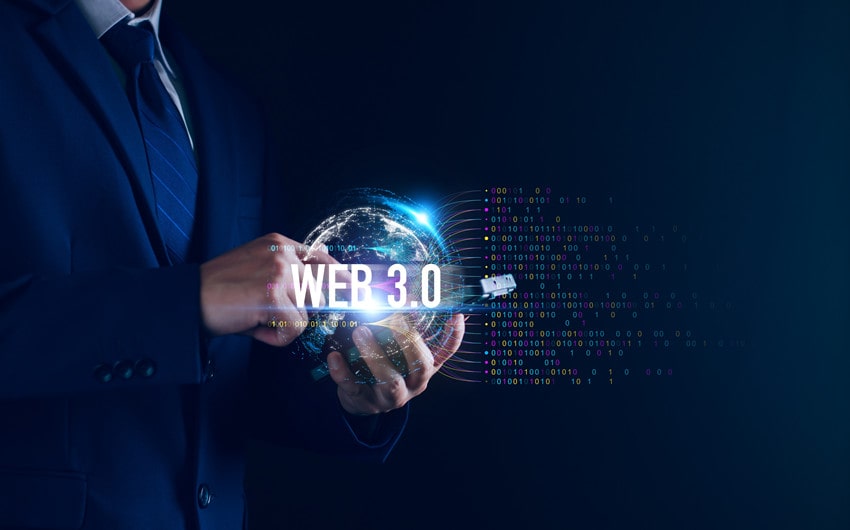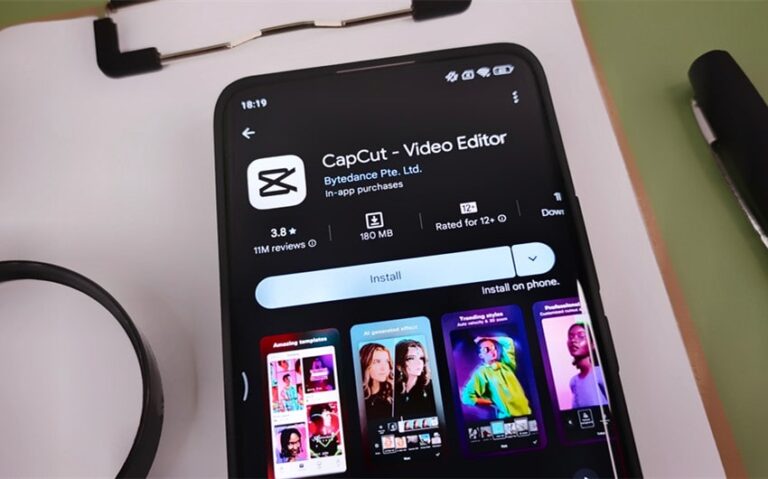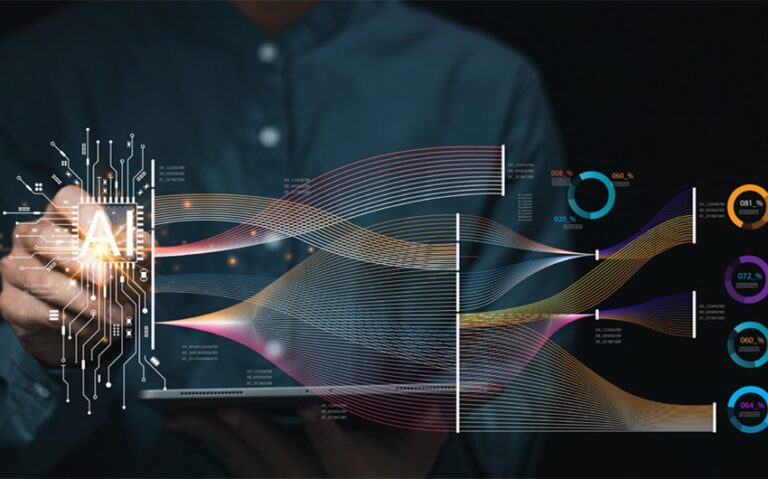Web 3.0: Features of Decentralized Internet and Its Apps (dApps)
The world of the internet has come a long way.
No, I am not talking about speeds, data cap, and accessibility; instead, I am referring to the technical side of the internet.
Can you guess?
Well, the internet was once seen as a static, read-only type of space. It was a space where there was less media, more writing, and just one-way interaction. Then came the world of Web 2.0. A world of two-way communication filled with a lot of videos, media content, pictures, social media, and whatnot. While the Web 2.0 world was fun, it had one major flaw – censorship.
Just like any organization, the management of different platforms could push narratives, delete content posted, and track down users. This gave rise to a completely new era of the internet, the decentralized Web 3.0 world.
So, what is the decentralized internet, or Web3.0? How does it stand out from other versions of the internet? Are decentralized apps any different from regular apps? What are some of the best decentralized apps that you can use?
Keep reading as we cover all these questions in this write-up.
- What Is Decentralized Internet Or Web3.0?
- What are Important Characteristics of Web 3.0?
- Are Decentralized Apps Any Different From Regular Apps?
- What are the Best Decentralized Apps That You Can Use?
- FAQs
What Is Decentralized Internet Or Web3.0?
As the internet became better, faster, and more accessible, all thanks to affordable residential internet providers. In the world of Web3.0 or Web3, there is no control. In fact, the user holds all the control. It is an open web, which is also known as the third-generation World Wide Web.
The best thing about this type of internet is the transparency that it offers. Unlike Web 2.0, where the data is collected and then stored in one place, i.e., a data house, Web 3.0 offers decentralized data storage.
This means that data is stored in the computer or nodes of the user. So, removing data is nearly impossible because it is retrievable. Moreover, if the data is altered, it has to be edited everywhere at the same time. Consequently, there is no chance of fraud at all.
So, if we have to look at the unique features that the previous two websites missed, it will definitely be privacy and data ownership.
To offer you a deeper insight into the world of Web 3.0, let us look at some of the important characteristics of Web 3.0.
What are Important Characteristics of Web 3.0?
While there are so many different features that make Web 3.0 stand out from the previous versions, here are some of the most important characteristics to consider:
• Semantic Web
With the help of the semantic web, users can not only create but also share and connect content via search. Unlike the previous versions, where the algorithm was all about numbers, this system actually runs on keywords.
For instance, a user might be looking for an internet provider, and when searched for one, he gets results for Spectrum customer service being the nearest to him. This way, keyword matching or semantic web search helps improve user access and connectivity.
• Machine Learning and AI
Now that machine learning and AI have become popular, this will help Web 3.0 get to a new level. The new generation of the internet will be more intelligent, better at responding to queries by using natural language processing (NLP).
• Internet of Things (IoT)
Internet of Things uses the semantic data on the web to make sure the user gets the best services via connected devices, i.e., house appliances and more.
• Data Safety
Thanks to the decentralized data protocols, user can now easily communicate with each other without worrying about their privacy or the involvement of a third party.
• 3D Graphics
Web 3.0 involves 3D graphics that also help in improving the user experience, allowing them more immersive virtual tours and a much better online shopping and gaming experience.
• No Authorization
Now users can easily take part in online activities without seeking permission from the centralized authority. This means you no longer have to sign up, share your data, or let the authority know who you are.
Decentralized Apps (dApps): Are They Any Different from Regular Apps?
Decentralized apps are software programs that are run using blockchain or a peer-to-peer network system. So, the data of the app is not shared on just one computer; instead, it has to be stored on a whole network. Consequently, there is no single authority; instead, the data is spread across a network, and users then collect this data.
In most cases, the basic technology used for building decentralized apps is Ethereum. Most of the wallets, exchanges, social media sites, and personal finance systems that we see today are designed using the Ethereum platform.
What are the Best Decentralized Apps That You Can Use?
Now that you understand the power of decentralized apps, let’s look at some of the most notable apps you can try. Keep in mind that these apps are limited to one domain; instead, you will come across different decentralized apps, games, media apps, finance apps, wallets, and more.
• Cash App
Starting our list with a fintech platform, we have Cash App. This is a peer-to-peer payment service app that ensures the safety of each transaction. The company also has a strong investment in bitcoin transactions and blockchain technology. Through this app, users can buy and sell Bitcoin on Cash App via the Lightning Network.
• Chainalysis
Another finance-based app, Chainalysis, mainly helps finance-based companies and government authorities to track the overall exchange of cryptocurrencies and investigate blockchain activity. This app mainly aims to track any scam, money laundering activities, or financial crimes.
• DFINITY
DFINITY is an open-source blockchain network that can help users create decentralized apps and other Web3 services on the chain without any help. This system offers some of the best features, like scalability with smart contracts and low-latency consensus that fully supports Bitcoin network integration and can be attached to social media apps as well as other community resources.
• BurstIQ
BurstIQ is a blockchain-based health app. This app ensures that the doctors get to securely manage and organize information related to health. Since it is a decentralized system, user has full data ownership and they can choose to offer access to their health professionals.
• Novo Nordisk
A global pharmaceutical and biotechnology company, Novo Nordisk, develops treatments for chronic diseases, especially disorders that affect a wide population. This includes obesity, Alzheimer’s, diabetes, and more. This company mainly uses technology like AI and machine learning to create unique therapy-based solutions for addressing different health conditions.
• OpenSea
If you are into NFTs, there are chances that you know about OpenSea as well. This platform mainly works as an NFT marketplace. You can simply sell, buy, and even create NFTs through this platform. Users can browse NFT art, games, and art pieces along with their price tags. For payment, OpenSea uses Coinbase and Trust Wallet so the users can sell or purchase instantly.
• Voatz
A mobile voting app that is backed by Blockchain, this app includes features like a biometric security system. Thanks to this system, each vote recorded on the device can be tracked without the fear of hacking or corruption.
• Sandbox
Sandbox is a game based on the blockchain platform. This is a play-to-earn 3D metaverse game where players can get to know about the virtual surroundings and then visit multiple metaverse locations and even buy land.
• Sorare
Another fun blockchain-based game, Sorare, is all about football. This game allows the user to handle a fantasy sports team. Players can buy, sell, trade, and manage the team or individual players with the help of digital player cards.
In short, there are countless Decentralized Apps (dApps). Each app serves a different function but is built on the same principle of security and more control. The above-mentioned are some of the best Everyday dApps that you can try.
FAQ’s
What is the most popular decentralized app?
Crypto wallets are so far the most popular. Apps like MetaMask, Uniswap, and OpenSea are considered popular decentralized apps.
What is decentralized gaming?
With decentralized games, player data, digital assets, and game-state data are stored within blockchain networks. Since these games are not owned or moderated by a single entity, players get more control.
What is an NFT game?
NFT games mainly rely on non-fungible tokens for simple tasks like players’ interaction, rules, and strategies.





